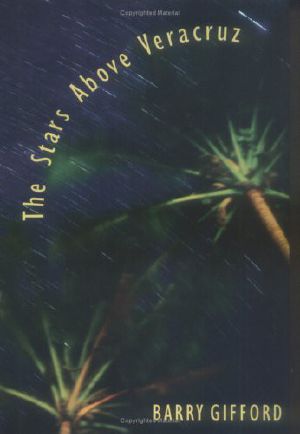The Stars Above Veracruz

- Authors
- Barry Gifford
- Publisher
- Thunder's Mouth Press
- Tags
- fiction , general , short stories
- ISBN
- 9781560258070
- Date
- 2006-12-13T08:00:00+00:00
- Size
- 0.22 MB
- Lang
- en
A high-wire artist named Ropedancer is our guide: his tale opens and closes this book of linked short fictions that take place in locales throughout the world. Gifford’s lyrical stories are often confessional, involving crimes large and small and narrators who, win or lose in their battles, never emerge unscathed. There is little triumphing here; victory lies in the completion of the journey, the survival of the high-wire artist who, step by step, follows his lifeline with utter concentration.
At once tragic and humorous, full of pathos, and reminiscent of Thornton Wilder’s humanist classic The Bridge of San Luis Rey, The Stars Above Veracruz is Gifford's most significant work since Wild at Heart.
As author Barry Gifford was writing these pieces, he gradually came to realize that what he was creating was a geographical fiction, or a geography of fictions. As Gifford explains, “Everybody has a story, no matter where they are in the world, and I conceived the device of The Ropedancer when I was in Veracruz, Mexico, at a hotel much like the Hotel Los Regalos de Dios, where the former funambulist, whom I call The Ropedancer, took up residence following the demise of the Dancing Ciegas, who plunged to their deaths from a high wire.”Many of these stories are tragic, some humorous, but all told by individuals in the confessional mode which is often the posture assumed by persons adrift in a foreign land and who find themselves not uncomfortably in conversation late at night with a stranger.
“Short, weird, and wonderful. . . . Gifford writes with confidence and beauty and an occasional touch of the bizarre. . . . Every stroke is clear and gripping.”—Esquire
“An artful ride down dangerous roads . . . it's a joy following [Gifford] along.”—Kirkus Reviews
“Move over Hemingway (and put down the damn gun)! [The Stars above Veracruz] just knocked my socks off.”—San Francisco Chronicle Sunday Magazine
“Few collections of stories open with such breathtaking charm as Barry Gifford’s latest . . . The Stars Above Veracruz . . . is a labyrinthine descent into magical noir . . . sparklingly poetic . . . a gorgeous, high-wire arabesque . . . every one evidence of a powerful and playful imagination.”–C.M. Mayo, Los Angeles Times
“In his masterful new collection . . . Gifford’s great talent captures defining moments with the casual grace of anecdote. Each of these 16 stunning tales makes the anecdotal monumental.”–Jonathon Keats, San Francisco Magazine
From Publishers WeeklyGifford saw his novel Wild at Heart become the David Lynch film, and he co-wrote the screenplay for Lost Highway; this series of snappy vignettes has a cinematic quality, more like a treatment for an episodic film (à la Jim Jarmusch's Night on Earth) than a collection of stories. Gifford repeatedly conjures the hard-luck story and the noirish setting as he points his lens from South America to New Zealand. "After Hours at La Chinita," set in a tacky Spanish-style motel in Los Angeles circa 1963, stages the shooting of a prostitute's abusive customer by God-fearing proprietress Vermillion Chaney; 20 years later, each of the players in the drama tells a version of the sad, late slide of the rest of their lives. "Almost Oriental" involves tortuous travel and romance inside a still-shuttered, deeply suspicious Romania by a Stanford University academic on the trail of Bukovina-born Jewish writer Rudolph "Buddy" Traum. Another long piece, "Murder at the Swordfish Club," concerns an elaborate murder mystery surrounding the death of a fisherman in the New Zealand coastal town of Russell. The prolific Gifford has produced multiple fully realized novels (such as 2004's Wyoming); this book, while vivid, feels like a break.
From BooklistThe prolific Gifford, whose novel Wild at Heart was adapted into the award-winning 1990 David Lynch film, here renders visceral vignettes that often seem better suited to the big screen than to print. A tightrope walker introduces the collection, whose diverse locales include New Zealand, Honduras, and France. There's a one-legged man who hangs himself over an unrequited, albeit incestuous, love: "Even had he the use of both legs, they would not have saved him. Instead of walking across the rope he finished by dancing at the end of it." In the masterful "After Hours at La Chinita," a prostitute, a celebrated supper--club singer, and a Bible-thumping motel clerk recount details of a deadly shootout. In the title tale, a man sips beer in a Mexico City cantina once frequented by bullfighters as he reminisces about a Eurasian girlfriend with "dove-shaped" hands and heady perfume. Although Gifford's short stories are endlessly nervy (there's a brash, bearded lady and a lingerie salesman who seduces women with his wares), his avid fans may find themselves longing for more substantive fare.